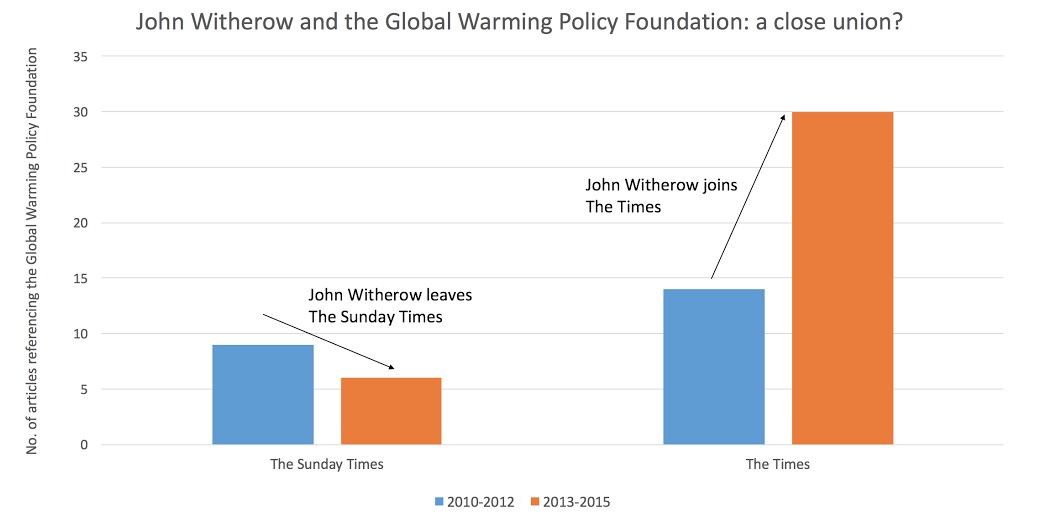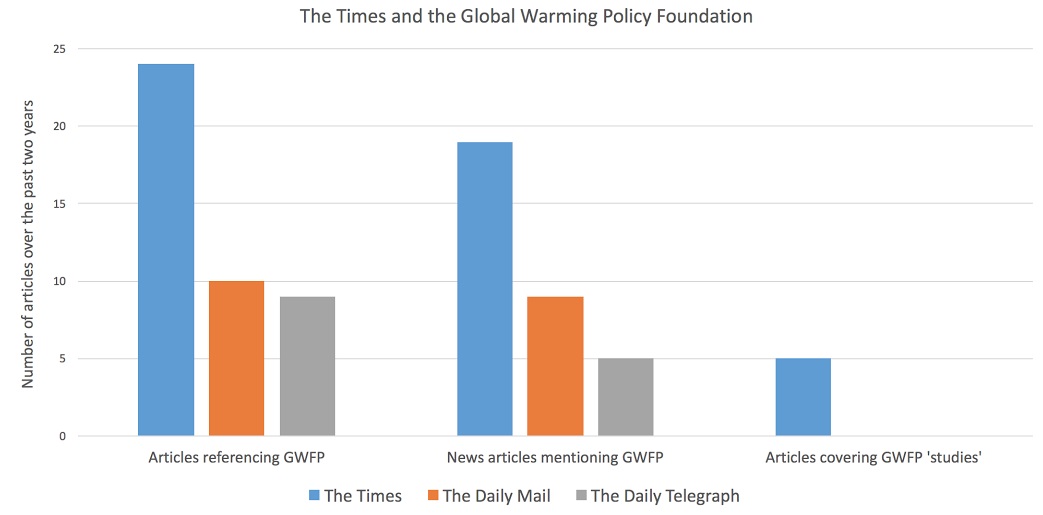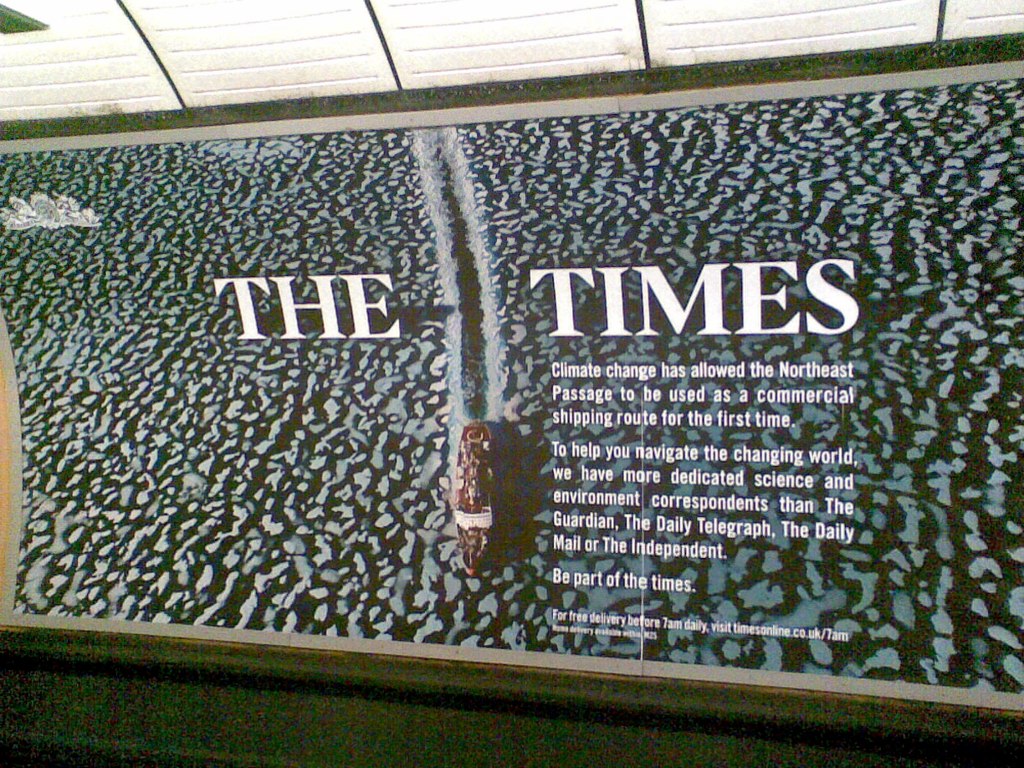A group of eminent scientists and UK climate advisors have criticised The Times newspaper for its “poor quality” and “distorted” coverage of climate change in a letter to the editor, John Witherow.
The letter, reported by the Guardian, argues that the frequent publishing of climate science denial articles linked to Lord Lawson’s Global Warming Policy Foundation (GWPF) is “particularly concerning”.
It reads: “many of the sub-standard news stories and opinion pieces appear to concern, in some way, the Global Warming Policy Foundation.”
“It would be deeply perturbing,” it continues, “to find that a paper as eminent as The Times could allow a small NGO, particularly one whose sources of financing are unknown, a high degree of influence.”
The letter, dated 20 April, is signed by Lord Deben, the current chair of the government’s official advisors on global warming, the Committee on Climate Change (CCC), and Lord Krebs, who chairs the CCC’s adaptation committee and is a former president of the British Science Association.
Other signatories include Fellows of the Royal Society (FRS), the UK’s elite science academy, including two past presidents Lord Rees and Lord May.
Also from the FRS is Lord Hunt, former head of the Met Office, Lord Oxburgh, former chair of Shell UK, and Lord Stern, the author of the landmark analysis on the economics of climate change and former chief economist at the World Bank. Bishop of London and former CCC chair Lord Turner also signed the letter.
They argue that the Murdoch-owned newspaper’s climate coverage “appears designed systematically to undermine the credibility of climate science and the institutions that carry it out, and the validity of programmes aimed at reducing emissions.”
In addition to its ties to the climate sceptic GWPF, they raise concern over the fact that “neither the quality bar that broadsheet newspapers regularly apply to scientific evidence, nor the simple concept of balance, appear to exist in all of your paper’s reporting on climate change.”
Inevitably, this aids its favourable coverage of climate denial. Matt Ridley for instance, a coal mine owner and member of the GWPF’s academic advisory board, has a regular opinion column in The Times.
And often articles will be based entirely on studies produced by the GWPF, such as the recent ‘Planet is not overheating, says professor’ which was debunked and ridiculed online by scientists within minutes of it being published.
A quick look through the Factiva information database of The Times’ GWPF climate coverage over the years shows it has grown under Witherow’s editorship of The Times (and subsequently dropped when he left the Sunday Times).

This link between The Times’s climate coverage and Witherow’s editorship has been raised previously by Bob Ward, London School of Economics’ policy and communications director of the Grantham Research Institute on Climate Change and the Environment, who in a 2014 New Statesman article wrote: “Is it a coincidence that these [climate sceptic] articles… began when John Witherow became the newspaper’s editor last year?”
And compared to the Daily Mail and the Telegraph’s coverage of GWPF-linked articles over the past two years, here too it seems The Times takes the cake.

As the 20 April letter reads: “As Editor, you are of course entitled to take whatever editorial line you feel is appropriate.
“Are you aware, however, how seriously you may be compromising The Times’ reputation by pursuing a line that cleaves so tightly to a particular agenda, and which is based on such flimsy evidence?”
The Times has become a “laughing stock” for publishing poor quality science articles the letter reads.
It urges the editor to make the “remarkably robust” level of evidence on climate change the “centrepiece of debate… rather than the viewpoints of one highly marginal and increasingly out-dated pressure group.”
The signatories, however, makes it clear that their comments are not “an attack on press freedom”.
“A healthy, vibrant, inquisitive press is a vital component of a mature democracy, and neither science nor ‘green’ business should be exempt from proper scrutiny.
“But trust is also essential for any newspaper, particularly one as distinguished as The Times. If you lose trust, you lose everything; and on this issue, you are losing trust.”
Photo: A 2009 advert for The Times via Pete Harmer / Flickr
Subscribe to our newsletter
Stay up to date with DeSmog news and alerts







